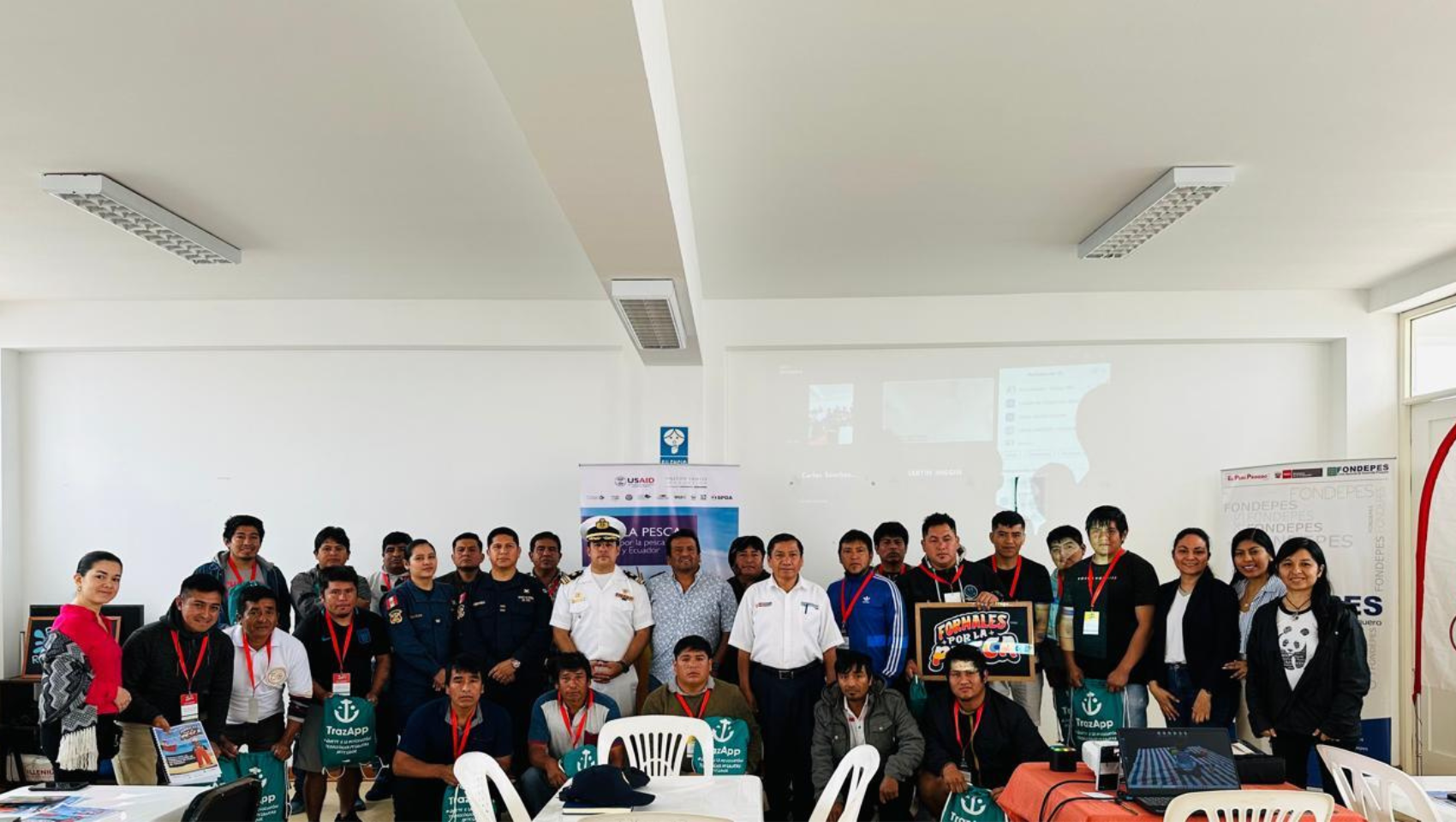Lambayeque: Courses inaugurated to enable the formalization of fishing captains of artisanal vessels
The courses are promoted as part of the Formal Fishing Campaign, developed as part of the Por la Pesca project, which is supported by the United States Agency for International Development (USAID) and the Walton Family Foundation.

According to the estimates of the Ministry of Production, there are more than 18 thousand formal artisanal fishing vessels in our country. However, the number of formal fishing captains – those responsible for steering the vessels, leading the crew and ensuring compliance with regulations at sea – is barely 5% of the total.
This low figure is due to the fact that, despite the fact that fishing captains have the experience to manage the vessels, the formalization procedures are usually complicated and one of the most difficult requirements to meet is the completion of high school.
In this context, and as part of the “Formales por la Pesca” campaign of the Por la Pesca project, more than 30 fishermen from the district of San José, in Lambayeque, began courses on August 1 to obtain the title of third-class fishing captain. These courses include classroom and practical training provided by the Fondo Nacional de Desarrollo Pesquero (Fondepes), as well as educational materials. In addition, they will receive technical-legal advice and assistance to complete their formalization as fishing captains, which includes medical examinations and the preparation and presentation of dossiers with all the necessary documentation.
During the inauguration of the course, Mario Fiestas, director of the San José Fishing Cooperative, said that “it is very gratifying for San José to be part of this initiative. We are a country of fishermen committed to formalization. The training and formalization of our fishing captains is fundamental, not only to improve the safety of the crew, but also to guarantee sustainable and responsible operations”.
In addition, the leader highlighted the willingness of his colleagues to initiate the course. “Often the processes are tedious and people can get discouraged, but we know that as long as we can demonstrate that our fishing has a formal and responsible origin, we will be able to access better opportunities in the market. This will be the first class of San José skippers this year, but we hope there will be many more”, said Fiestas.
 SPDA
SPDA
The courses are part of a pilot program developed by the Peruvian Society of Environmental Law (SPDA) and WWF Peru, partner organizations of the Por la Pesca project. Initially, more than 200 people responded to the call for applications, “unfortunately, many of them did not meet all the requirements required by the Maritime Authority, such as having completed the fifth year of secondary education. However, if this pilot project is successful, as we hope it will be, we will try to replicate the experience in other regions so that we can have more skippers working formally”, explained Marylia Vargas, SPDA’s formalization specialist for the fishing industry.
For his part, José Álvarez, WWF Peru’s fisheries officer, emphasized that formalization is crucial because it allows fishermen to work within a formal framework according to regulations and also improves safety on board. “With formalization, fishermen will be able to operate freely before the authorities without fear of being sanctioned. They will also be able to electronically record their fishing trip and participate in other processes related to responsible fishing”, he said.